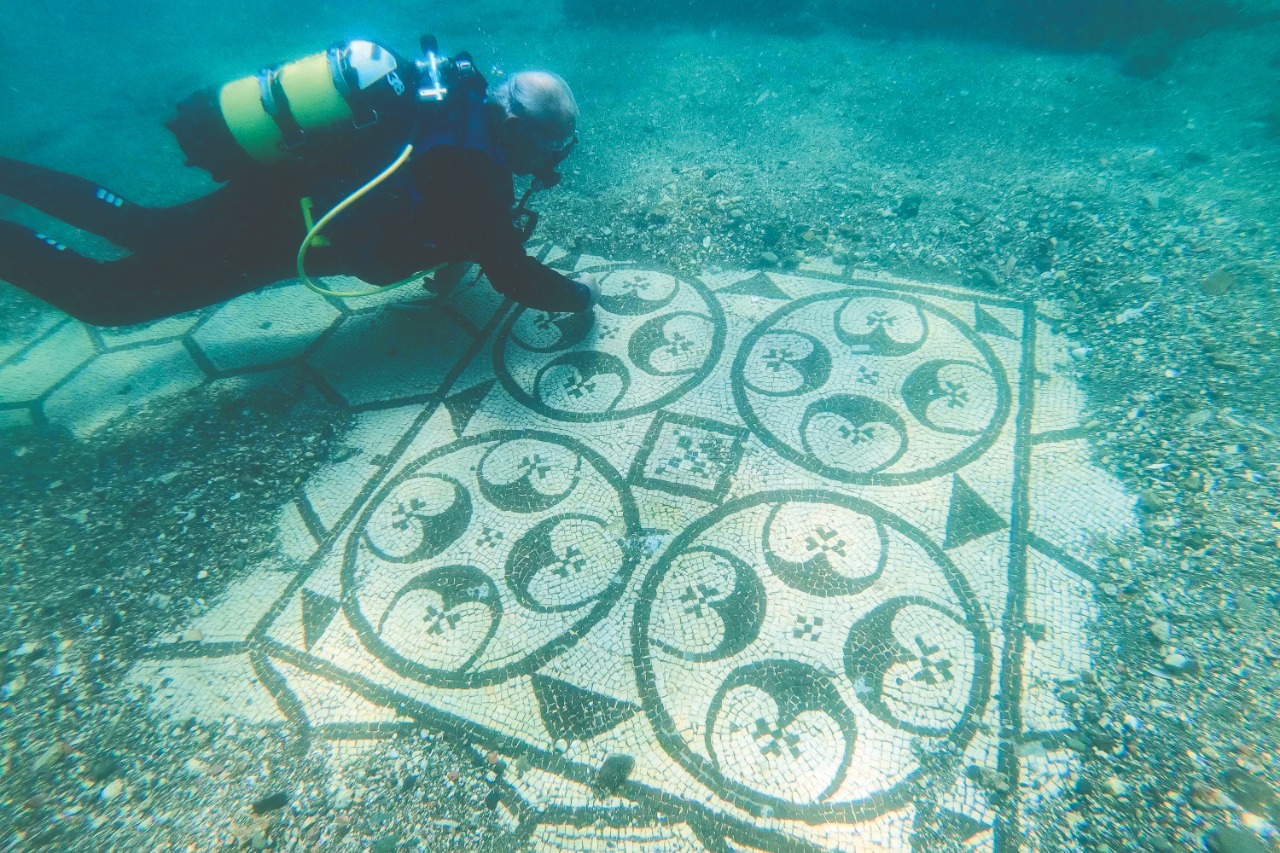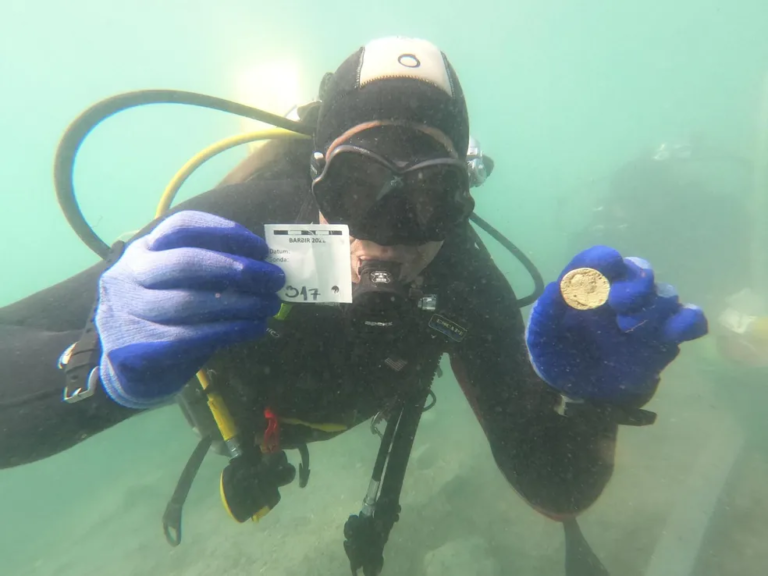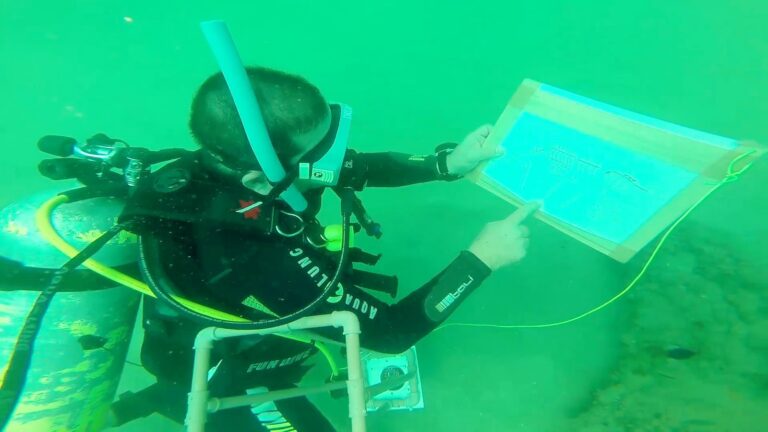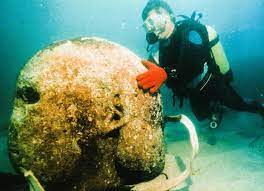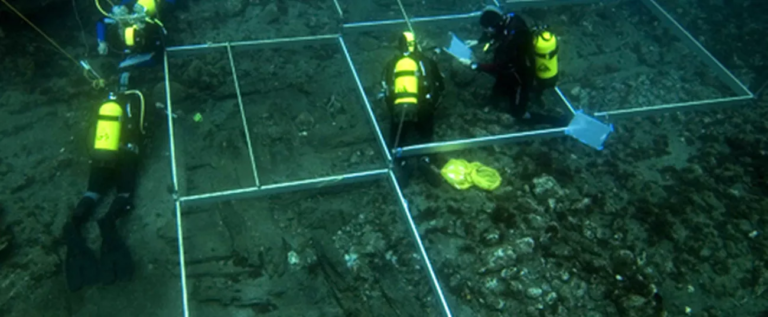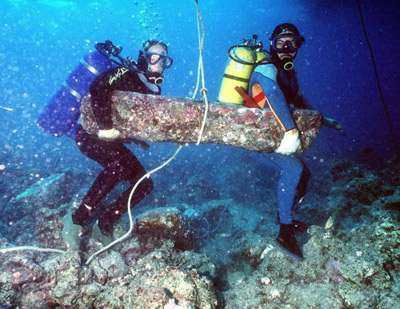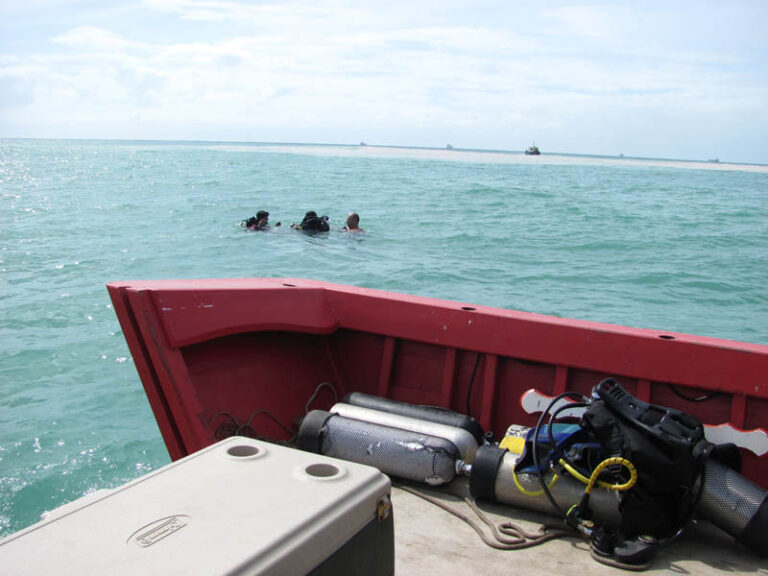Submerged Stories: Recreational Diving and Archaeology in Action
Recreational diving is an exhilarating activity that offers a unique sense of adventure to enthusiasts. The mesmerizing underwater world has an undeniable allure, attracting individuals who seek thrills and a deeper connection with nature. But what if recreational diving could also be a gateway to uncovering hidden archaeological treasures? This is precisely where recreational diving in archaeological sites comes into play, blending the excitement of diving with the importance of historical preservation and research.
Table of Contents
The History of Recreational Diving
Recreational diving has come a long way since its humble beginnings. Exploring the origins and evolution of recreational diving is essential to understand its current popularity and the advancements it has undergone. In the early days, recreational diving was primarily a pursuit for the adventurous and those seeking unique experiences. The thrill of diving into the unknown depths of the ocean was captivating.
Over time, diving equipment and techniques have significantly evolved, making underwater exploration more accessible and enjoyable. The invention of the aqualung by Jacques-Yves Cousteau and Emile Gagnan in the mid-20th century revolutionized diving. This self-contained underwater breathing apparatus allowed divers to stay submerged for longer periods and explore greater depths. Since then, technology has continued to advance, with improvements in gear, underwater cameras, and communication devices enhancing the diving experience.
With these advancements, recreational diving has become increasingly accessible to a wider audience. The popularity of diving as a recreational activity has soared, and more and more people are drawn to the excitement and adventure it offers. Many diving destinations around the world now cater to divers of all levels, providing training courses and guided tours to ensure a safe and enjoyable experience.
Today, recreational diving is not just a hobby; it is a thriving industry that brings together passionate individuals from different backgrounds. Diving communities have been formed, and enthusiasts gather to share their stories, knowledge, and love for the underwater world. The accessibility and popularity of recreational diving have made it a significant part of contemporary adventure tourism, attracting travelers from all corners of the globe.
The history of recreational diving serves as a testament to the growing fascination with the underwater world and the desire to explore its mysteries. As technology continues to advance, it is likely that recreational diving will only become more accessible and popular, opening doors to new adventures and discoveries.
Archaeology Underwater
Underwater archaeological sites hold immense importance in unraveling our rich history and understanding past civilizations. Exploring these submerged sites provides a unique opportunity to discover and preserve artifacts that were once lost to the depths of the ocean. The importance of underwater archaeological sites lies in their ability to paint a more comprehensive picture of our past, as many historical events and artifacts are buried beneath the sea.
However, exploring these submerged sites poses numerous challenges for archaeologists. Archaeologists face the difficulties of operating in a hostile underwater environment, such as limited visibility and strong currents, which can hinder excavation and documentation efforts. Moreover, the corrosive nature of seawater poses a constant threat to the preservation of underwater artifacts. The challenges faced by archaeologists in exploring submerged sites require meticulous planning and specialized skills to overcome.
Despite these challenges, the significance of underwater archaeological preservation cannot be overstated. The preservation of underwater archaeological sites safeguards our cultural heritage and enables future generations to learn from the past. By studying these sites, experts can gain insights into ancient civilizations, trade routes, and maritime history. Underwater archaeological preservation ensures that invaluable knowledge and artifacts are not lost to time and that our understanding of human history continues to grow.
In conclusion, underwater archaeological sites hold great importance in understanding our past and preserving our cultural heritage. While the challenges faced by archaeologists in exploring these submerged sites are significant, it is crucial to continue efforts in underwater archaeological preservation. By recognizing the significance of these sites and supporting their exploration and preservation, we can uncover hidden historical treasures and shed light on the mysteries of our ancestors.
The Intersection of Recreation and Archaeology
Recreational diving and archaeology may seem like unlikely bedfellows, but they actually come together in a fascinating and mutually beneficial way. The concept of recreational diving in archaeological sites has gained traction in recent years, as diving enthusiasts seek new adventures and archaeologists recognize the potential for valuable research and preservation. By combining their passions for exploration and discovery, recreational divers have the opportunity to make significant contributions to archaeological studies.
When recreational divers venture into archaeological sites, they bring with them a unique set of skills and perspectives that can greatly enhance the field of archaeology. Their expertise in underwater navigation and their ability to explore submerged structures can provide invaluable insights to archaeologists. Additionally, their underwater photography and videography skills can capture detailed images and footage of artifacts and sites that may otherwise remain hidden or inaccessible.
Successful collaborations between archaeologists and recreational divers have already yielded impressive results. For example, a team of recreational divers recently discovered an ancient shipwreck off the coast of Greece, shedding light on trade routes and maritime history from centuries ago. In another instance, a group of divers assisted archaeologists in mapping underwater cave systems, uncovering evidence of prehistoric human habitation. These examples illustrate the immense potential for joint efforts between recreational divers and archaeologists.
In addition to contributing to research, recreational divers can also play a crucial role in the preservation of underwater cultural heritage. By adhering to responsible diving practices, such as avoiding contact with delicate structures and artifacts, divers can help ensure the long-term preservation of archaeological sites. They can also serve as ambassadors for underwater preservation, educating others about the importance of protecting these valuable resources.
The intersection of recreation and archaeology opens up a world of opportunities for both diving enthusiasts and archaeologists. By combining their passions and expertise, they can uncover exciting discoveries, contribute to archaeological research, and preserve our underwater cultural heritage for future generations. So, whether you are a recreational diver looking for new thrills or an archaeologist seeking fresh perspectives, consider diving into the captivating realm of submerged archaeological sites.
Exciting Discoveries and Adventures
Recreational diving in archaeological sites offers a world of excitement and the opportunity for thrilling discoveries. Recreational divers who explore underwater archaeological sites have been responsible for uncovering numerous significant archaeological discoveries. These discoveries have provided valuable insights into the past, shedding light on lost civilizations and bringing history to life.
One such example is the discovery of an ancient shipwreck off the coast of Greece. Recreational divers stumbled upon the wreckage while exploring the depths of the Mediterranean sea. The ship was found to be carrying a cargo of ancient artifacts, including pottery, statues, and even jewelry, providing archaeologists with a treasure trove of historical information.
The thrill of exploring underwater archaeological sites cannot be overstated. As divers descend into the depths, they are surrounded by a sense of mystery and wonder. The beauty and tranquility of the underwater world, combined with the possibility of stumbling upon a hidden piece of history, creates an indescribable sense of excitement and adventure.
Recreational divers often encounter unique experiences and surprises during their explorations. One diver recalls the awe-inspiring moment when they came face to face with a perfectly preserved ancient wall covered in intricate carvings. Another diver recounts the exhilaration of discovering a hidden cave filled with ancient artifacts and human remains. These encounters not only provide personal fulfillment but also contribute to our understanding of the past.
Through their passion for exploration, recreational divers play a vital role in uncovering the mysteries of the underwater world. By sharing their discoveries with archaeologists and the wider public, these divers are helping to piece together the puzzle of our history. Their contributions ignite the imagination and inspire others to embark on their own underwater adventures.
Overall, recreational diving in archaeological sites offers a unique blend of discovery, adventure, and preservation. It brings together individuals with a love for both diving and history, creating a community of enthusiasts dedicated to uncovering the submerged stories of the past. With every dive, recreational divers have the opportunity to make exciting discoveries, participate in thrilling adventures, and contribute to our understanding of the world’s heritage.
Responsible Diving and Preservation
Recreational diving in submerged archaeological sites offers a unique opportunity to explore the depths of our history, but it comes with a responsibility to preserve these precious sites. Emphasizing the importance of responsible diving practices is crucial to ensure the protection and longevity of underwater cultural heritage.
Guidelines and protocols have been established to safeguard underwater archaeological sites. These guidelines outline the necessary precautions and behaviors that divers should adhere to when exploring these fragile environments. It is essential for divers to be aware of and follow these guidelines to minimize their impact on the sites.
To preserve the underwater cultural heritage, divers should avoid disturbing or removing any artifacts or archaeological materials they may encounter. Even the slightest disturbance can have a significant impact on the delicate balance of the site. Respect for the site is paramount, so it is important to observe without touching and leave everything as found.
Furthermore, divers should be aware of their surroundings and take care not to damage any part of the submerged archaeological site. Avoiding direct contact with the site’s structures or vegetation is vital to preserving the integrity of the site and its artifacts. Staying buoyant and maintaining neutral buoyancy can help prevent accidental contact and ensure the preservation of these sites for future generations.
Additionally, divers can contribute to the preservation of underwater cultural heritage by reporting any discoveries or unusual findings to the appropriate authorities or archaeologists. Their expertise and knowledge can help determine the significance of these finds and potentially uncover new aspects of our history.
In conclusion, responsible diving practices play a crucial role in preserving underwater archaeological sites and protecting our cultural heritage. By following guidelines and protocols, divers can minimize their impact on these fragile environments and ensure that future generations can continue to explore the exciting world of submerged archaeology.
Conclusion
Recreational diving holds immense value in the field of archaeology, bringing together thrill-seekers, history enthusiasts, and preservation efforts. The intersection of these two worlds has led to remarkable discoveries and collaborations, all while offering divers a unique and thrilling adventure.
Throughout history, recreational diving has evolved from its humble beginnings to become a widely accessible and popular activity. With advancements in diving equipment and techniques, enthusiasts can now explore depths previously unreachable, uncovering hidden stories beneath the surface.
Underwater archaeological sites play a crucial role in preserving our historical heritage. However, exploring these submerged sites presents significant challenges to archaeologists. The preservation of underwater cultural heritage requires utmost care and responsible diving practices. Recreational divers have a vital role to play in this endeavor, as they can contribute to archaeological research and preservation efforts.
There have been several successful collaborations between archaeologists and recreational divers, resulting in exciting discoveries. These stories of significant findings made by recreational divers add to the allure and adventure of exploring underwater archaeological sites. The thrill and unique experiences encountered by divers in these submerged stories continue to captivate and inspire.
Responsible diving practices are paramount in ensuring the preservation of underwater cultural heritage. Divers must adhere to guidelines and protocols to minimize their impact on archaeological sites. By participating in these practices, enthusiasts help protect and conserve these valuable treasures for future generations.
In conclusion, recreational diving provides a gateway to the fascinating world of archaeology. It offers thrill-seekers the opportunity to explore submerged archaeological sites while contributing to preservation efforts. The potential for future collaborations and discoveries is vast, encouraging readers to dive into the thrilling adventure of exploring the exciting world of submerged archaeological sites through recreational diving.

